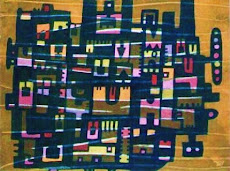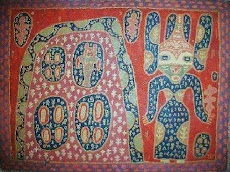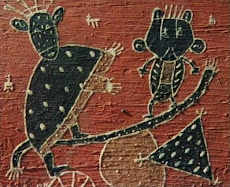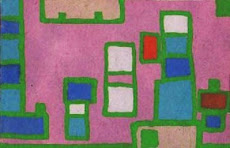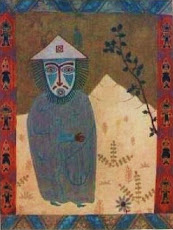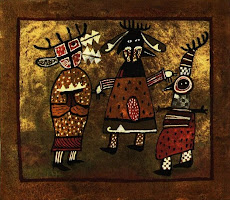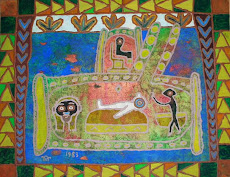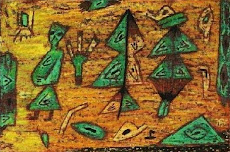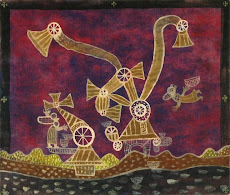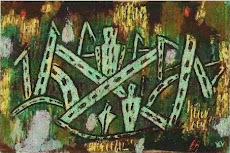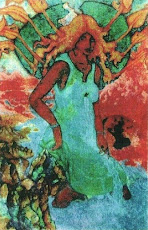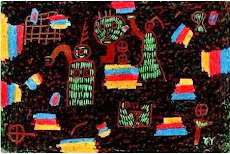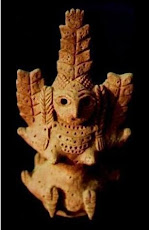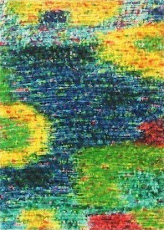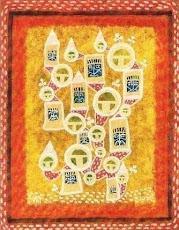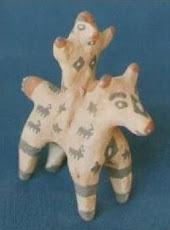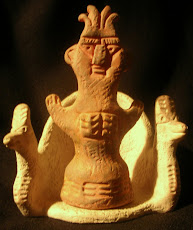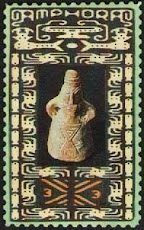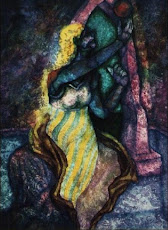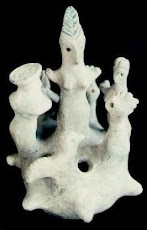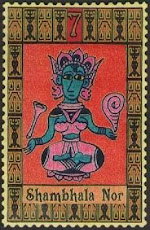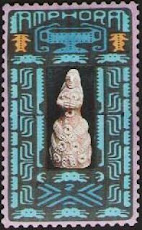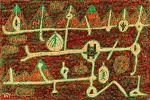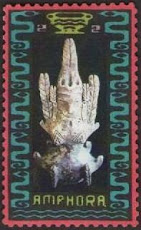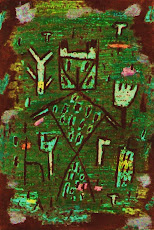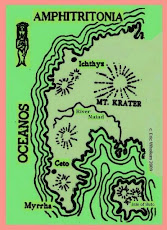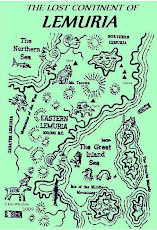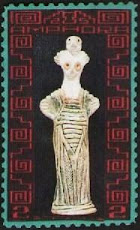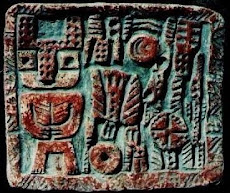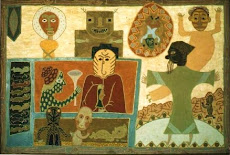Yeponi
Maidem Kodom
2010
by Eric Whollem
copyright by the artist
The Concow Captain
The modern Concow Maidu Native Americans of Butte County,
California, use the term 'captain' for what is popularly called the
'chief' in common English useage.
Yeponi is the Concow word for shaman. Usually the Maidu use
the expression, 'doctor' to designate the shaman or medicine man.
In that the Maidu culture is based on dream knowledge, the doctor
who has the most wisdom and power in his dreams becomes the
Yeponi, or head shaman. One doctor I talked to said that he could
fly at will in his dreams. He told me that the doctor who was the
best dreamer was the best leader of the people, as he could protect
and lead them properly.
If a person dreams that he is to bring something to a Big Time, he
follows his dream. A 'Big Time' is the popular expression for what
is generally called a Pow Wow.
The religion of the Concow Maidu is called Kuksu and is made up of
a Dream Society of initiates.
USBUKI
Many young people are intitated as warriors. In this initiation, based
on dream, they take on their Usbuki, or warrior power. Usbuki is the
Great White Lizard.
Usbuki is the opposite of Henokano, the Coyote. The old stories tell of
their legendary combat. Coyote is the trickster energy. Usbuki is
symbolized by the moon. The moon thus represents the world of dream.
It is said that Usbuki lives today in the Middle Fork Canyon in a cave
behind the waters of Feather Falls. Feather Falls is the second highest
waterfall in the United States, second only to Yosemite Falls. The Middle
Fork of the Feather River is called Supi Poboku in the Conow language.
I have a friend who is Iroquois. She told me that the White Lizard is
found in many Native American traditions; it is a symbol of the power
of dreams. Warrior Power among the Concow Maidu is the same as
Dream Power.
('NOTES: Sewi' means river. Water is 'momih.' Supi Poboku and all the
branches of the Feather River used to be full of salmon. 'Mako' is the name
of salmon. The Middle Fork is also the location for stories of Woctolly,
the half-human, half salmon merman of Maidu folklore.)
THE SENOI
I recall a quote from an Indian who once said, 'White man does not
dream; he lies.' This telling statement reveals the depth of respect
given to the dream world among Native Americans.
Today many more people are getting in touch with dreaming. Back in the
1970's there was a popular book that was called, 'Creative Dreaming,'
which detailed the dream culture of the Senoi, a tribe in Malaya.
The Senoi taught every child to recall his dreams and to change things
in them that are bad. By the time the kids are teenagers, they can do
whatever they want in the dreamworld. The Senoi are left alone by
their tribal enemies, as they are considered to be people of great
psychic ability.
______________
Readers interested in my posts on Shamanism might want to see:
This is a link to my posts on the Maidu:
Those who want to see my gallery of Artist Stamps should check out:
Those intersted in my approaches to Earth Paints should see this link:
My posts on Kuksu can be found here:
*
Artist stamps, artistamps, cinderella stamps, cyberstamps, fantasy stamps, faux postage, mail art, micronation stamps. Maidu Indians. Shamanism.


















